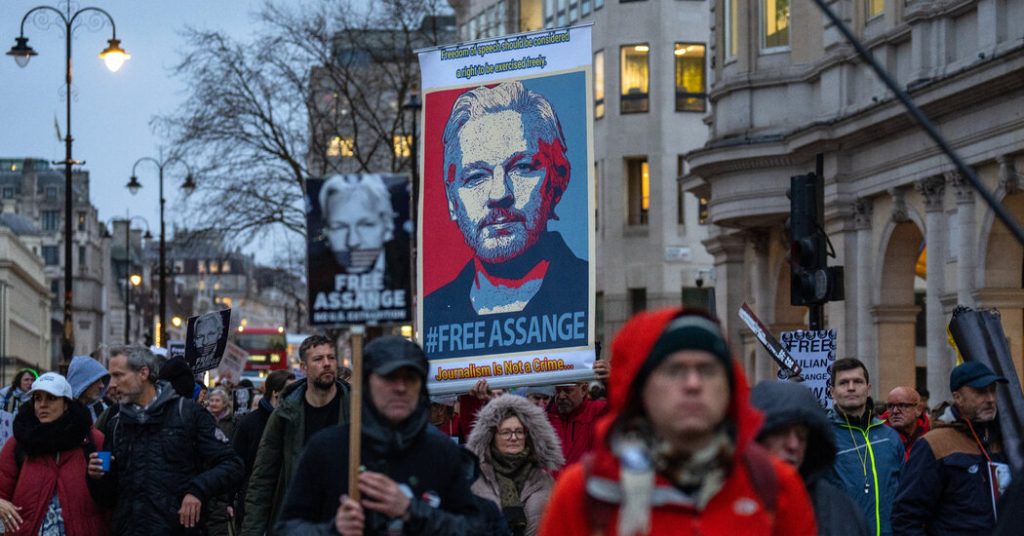The London court has allowed Julian Assange, the founder of WikiLeaks, to appeal his extradition to the United States. This decision comes after questions arose regarding his First Amendment rights in the U.S. and concerns about potential prejudice due to his Australian nationality. Mr. Assange’s lawyers must submit a full case outline to the court by Friday. He has been held in Belmarsh, a high-security prison in London, since 2019 as he fought against the extradition order.
The U.S. Embassy in Britain provided assurances regarding Mr. Assange’s rights under the U.S. Constitution, including the guarantee that he would not face the death penalty. However, his legal team argued in court that these assurances did not go far enough to meet the court’s request, particularly regarding his ability to rely on the First Amendment right to free speech. The judges agreed that Mr. Assange had grounds to appeal based on this issue.
Mr. Assange faces charges in the U.S. under the Espionage Act related to WikiLeaks’ publication of secret documents leaked by Chelsea Manning in 2010. In 2012, he sought refuge in the Ecuadorean Embassy in London to avoid arrest and remained there for seven years. After being evicted in 2019, he was arrested. The request for his extradition was denied in 2021 but later approved by Britain’s home secretary.
Supporters, including Reporters Without Borders, consider the court’s decision a victory for press freedom and have urged President Biden to drop the case against Mr. Assange. His prolonged legal battle has raised concerns about his physical and mental health. His legal team has focused on a political resolution, with increasing support from political leaders worldwide. The Australian government has supported Mr. Assange, and President Biden has indicated the administration is considering a request from Australia for a resolution that does not involve imprisonment for Mr. Assange.
The nature of the case, with numerous appeals and legal challenges, has allowed Mr. Assange to “buy time” for a potential political solution, according to experts. While his lawyers argue that he could face a lengthy prison sentence if convicted, U.S. lawyers have suggested a shorter sentence. The decision to allow Mr. Assange to appeal his extradition points to the complexities of the case and the various legal, political, and human rights issues at play.
Despite the uncertainty surrounding Mr. Assange’s future, his legal team, supporters, and advocates for press freedom continue to push for a resolution that upholds his rights and emphasizes the importance of journalistic freedoms. The case highlights the challenges faced by whistleblowers and journalists who expose government secrets and raises questions about the balance between national security concerns and the public’s right to information. Overall, the decision to allow Mr. Assange to appeal his extradition marks a significant development in his ongoing legal battle.


